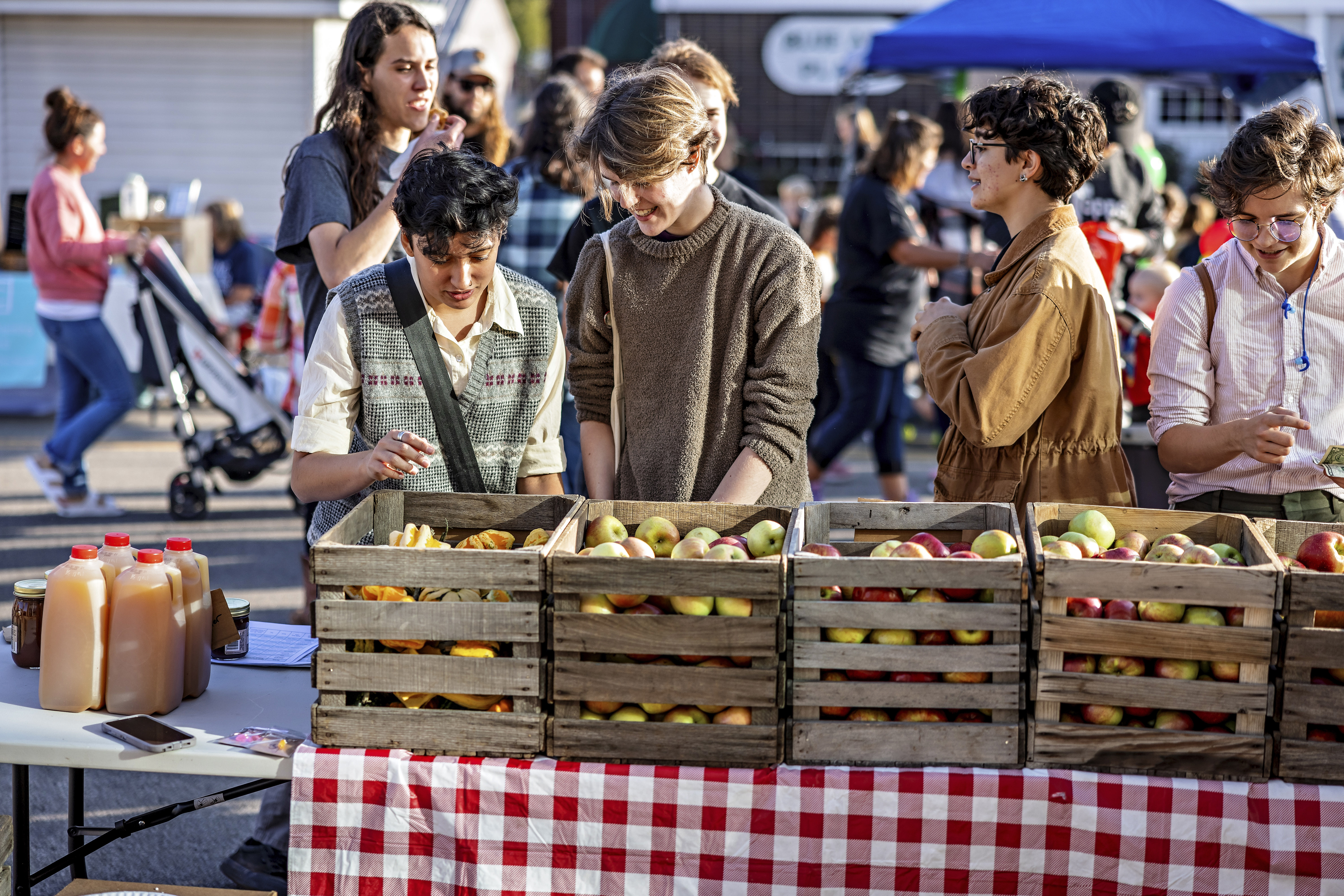Local Connection to a Legend
For those who stayed on campus for fall break in October, the third annual Johnny Appleseed Festival, organized by Experience Mount Vernon, offered plenty of food and fun to kick off the fall season. The idea for the festival, notes Todd Taylor, board president of Experience Mount Vernon, was to offer the local community one last celebration of the summer season. “For us this is the last festival of the year,” he said. “We feel like every part of every year is worth celebrating.”

While the festival may have only just concluded its third run, the man and fruit that it celebrates go much further back. “Johnny Appleseed,” or John Chapman, as his name is recorded in local land and voting records, purchased his first two personally owned properties in Mount Vernon in 1809. Today, as a 2018 Kenyon Collegian article humorously put it, “one [lot] is now a tire store; the other right on the banks of the shore [of the Kokosing river], is mostly underwater.” The location of the festival last month, then, was fitting, as it was only about a block north of Main Street — still proximally connected to the plot where Chapman sewed the first apple seeds on his own land.
Those apple seeds, though, were very much not intended for mere eating. According to a 2014 article published by the Smithsonian, Chapman was primarily interested in apples for their use in brewing the favorite drink of the era — hard apple cider. To do this, men like Chapman needed land and money. Thus, for many years Chapman ran a profitable business traveling ahead of settlers moving West in the young and expanding United States, acquiring land by establishing permanent homesteads, which required the planting of several apple and peach trees. Chapman would then be granted the “proven land” before taking some of the apples those trees produced, brewing cider and then selling both the cider and the land itself for a profit and repeating the process many times over.
The festival commemorating the man and what might have been his favorite (and quite possibly most profitable) season, though, wasn’t as much concerned with alcohol, let alone land speculation, but rather good family fun.
“The third [annual festival] was a success. Every year we add new ‘flavors’ to the festival — new [artisans], new food vendors — every year there is something new, ”said Tim Corrigan of the People’s Bank of Mount Vernon, one of Experience Mount Vernon’s community partners.
This year’s offerings included, among many others, apple related food products like breads and granolas produced and sold by Miller's farm market stand, wooden craft goods crafted ASE woodworking, an assortment of food trucks and even a cider press demonstration presented by Kenyon’s very own Brown Family Environmental Center.
Todd stressed, "This is a local event with all of our food and talent coming locally, we’ve found that giving the local talent and vendors access to the public is really key to making events like these successful.”
The festival is part of a larger ongoing effort spearheaded by Experience Mount Vernon to make the city more active. “This follows right after the first Friday event” Todd said, who adds that the event has more than doubled in popularity since its inception. “The formula… for the event works well… and… it goes to show that you don't really know what you have locally, talent, products, history, until you look.”